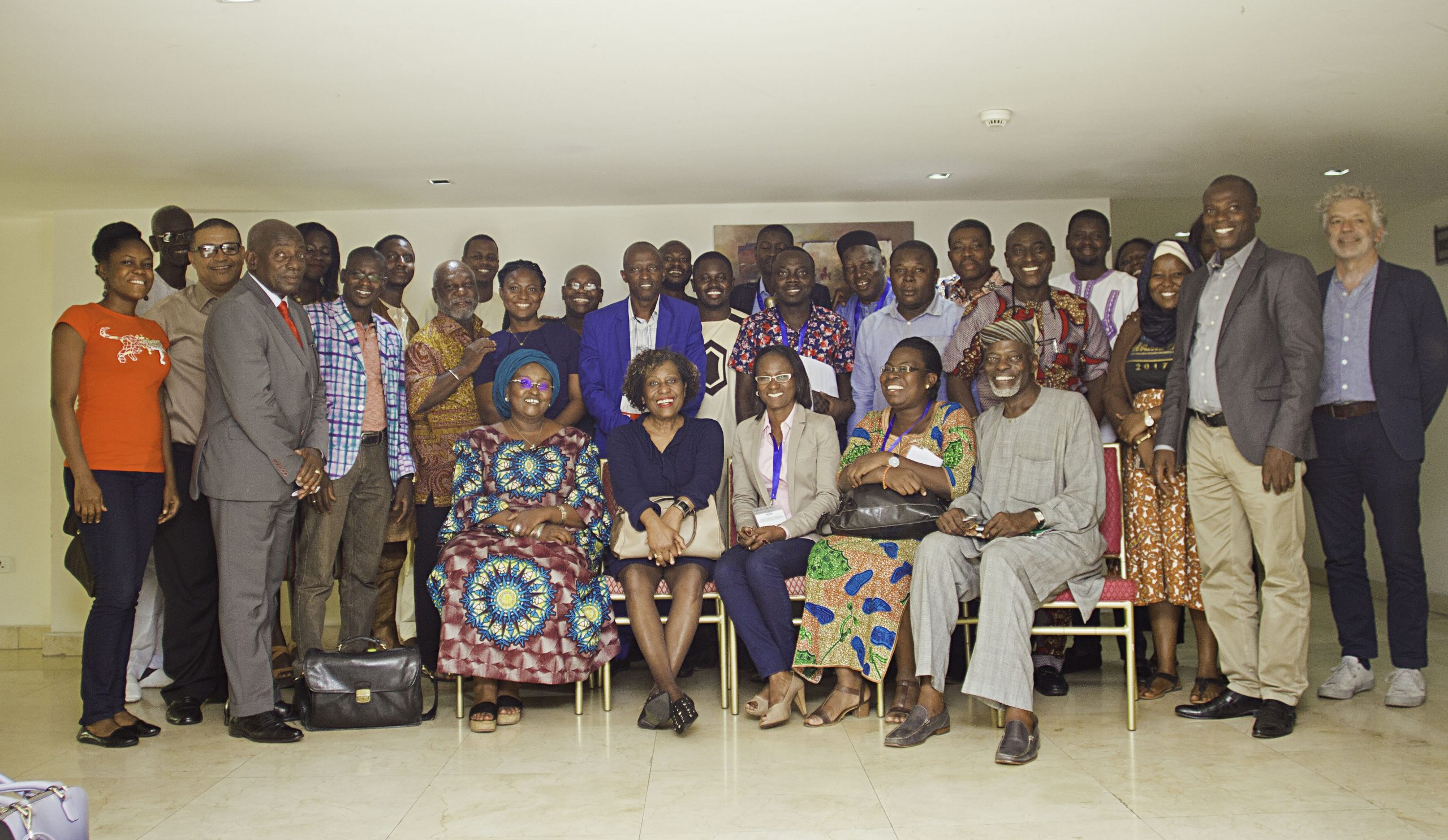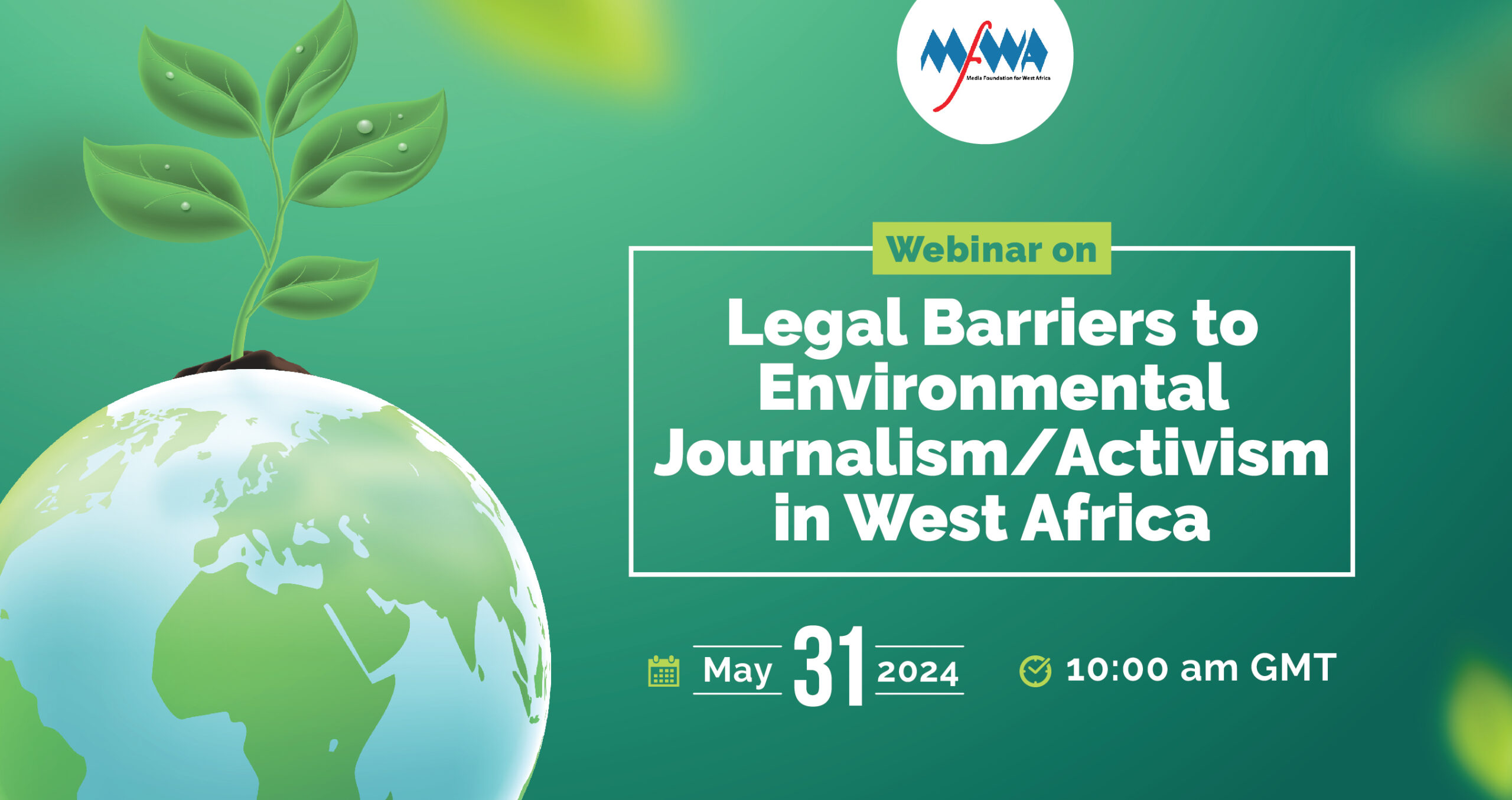The Media Foundation for West Africa (MFWA) has joined 29 other organisations around the world to call for improved protection for journalists and the promotion of freedom of expression in Burkina Faso and Mali.
The appeal was made in an open letter addressed to a number of UN bodies, the African Union, and ECOWAS leaders. Thirty (30) organisations including the MFWA signed the petition letter which is part of advocacy activities marking the World Press Freedom Day on 3 May 2023.
The two West African Sahelian countries are plagued by political instability and attacks by terrorist groups. In the last three years, both countries have experienced two coups d’état, which have greatly affected the environment in which journalists work as well as their safety. Journalists’ ability to travel to news sources has become extremely restricted, and reporting on terrorist activities and counter-insurgency operations has become dangerous.
“Threats to freedom of expression and press freedom are particularly alarming in Burkina Faso. The measures taken by the authorities of this country, especially in recent months, are likely to undermine the fundamental rights of citizens to information. Freedom begins where ignorance ends,” the petitioners decried.
“Similarly, in Mali, pressure and intimidation against journalists and opinion leaders are increasing. From November to December 2022, the channel Joliba TV was suspended by the High Authority for Communication (HAC), it broadcast an editorial deemed critical of the authorities,” the signatories also deplored.
In light of all this, the signatories to this open letter urged the authorities of Mali and Burkina Faso to put an end to all measures that undermine press freedom.
They also called on national leaders and pan-African and international bodies to whom the petition is addressed, “to support this initiative at the highest level.”
Read the full petition below:
Open letter about protecting journalists and defending freedom of expression and press freedom in Mali and Burkina Faso
For the attention of :
- The President of the Assembly of Heads of State and Government of the African Union
- The President of the Authority of Heads of State and Government of ECOWAS
- The President of the Conference of Heads of State and Government of WAEMU
- The Chair of the African Union Commission
- The President of the ECOWAS Commission
- The President of the WAEMU Commission
- The President of the Pan-African Parliament
- The UN Secretary-General
- The President of the UN Human Rights Council
- The Director-General of UNESCO
- The Secretary-General of the OIF
- The heads of the media regulatory bodies of the 15 ECOWAS countries
- The President of the Francophone Network of Media Regulators
- The President of the Platform of Broadcasting Regulators of WAEMU member countries and Guinea
- The Ministers of Communication of the 15 ECOWAS member countries
- The Chair of the African Broadcasting Union
What with calls for journalists and opinion leaders to be murdered, threats and intimidation against the national press, grotesquely fabricated accusations against journalists, the suspension of local broadcasting by French international news outlets RFI and France 24, and the expulsion of reporters with the French newspapers Libération and Le Monde – the threats to freedom of expression and press freedom are very worrying in Burkina Faso. Measures taken by this country’s authorities, especially in recent months, are liable to undermine the public’s fundamental right to be informed. Freedom begins where ignorance ends.
Journalists and opinion leaders are increasingly subjected to harassment and intimidation in Mali as well. The Maison de la Presse in Bamako was ransacked on 20 February 2023. Mohamed Youssouf Bathily, a radio columnist better known by the pseudonym Ras Bath, was charged and imprisoned on 13 March for denouncing former Prime Minister Soumeylou Boubèye Maïga’s “assassination.”
Rokia Doumbia, the influencer also known as “Rose vie chère,” was arrested on 15 March for referring to inflation and the transitional government’s “failure.” The journalist Aliou Touré was abducted by masked gunmen on 6 April and was not found until four days later.
Here too, the international press is far from being spared. In February 2022, a Jeune Afrique reporter was deported from Bamako. A month later, RFI and France 24 were silenced throughout Mali. In November and December 2022, the Malian TV news channel Joliba TV was suspended by the High Authority for Communication (HAC) after it broadcast an editorial deemed critical of the authorities.
In both Burkina Faso and Mali, these attacks are increasingly amplified on social media by “influencers” who support the military governments in these two countries, who play at dispensers of justice and issue death threats against journalists and opinion leaders they regard as overly independent. Lies are now being added to the violence. The headline “Installation of a regime of terror” in the Burkinabe daily L’Observateur Paalga was accompanied by a flood of fake news in the social media that specialise in falsehoods. The victims of these “influencers” are the Malian and Burkinabe public, who are deprived of a democratic debate.
Amid what is a serious security crisis in both countries, journalists are all aware of their crucial duty to inform the public. They also understand the complexity of the political, geopolitical and military context. They also live and suffer the serious consequences of this security crisis. Like all citizens, they want a quick return to peace. However, the fight against terrorism must not in any way serve as a pretext for imposing a new reporting standard and restricting the fundamental rights of the Malian and Burkinabe public to seek and access news and information through professional and independent media.
In Burkina Faso, the situation of journalists has become so critical that even the entity in charge of regulation is alarmed. In a press release published on 29 March, the Superior Council for Communication (CSC) said it “notes with regret the recurrence of threats against media outlets and media actors” and asked the authorities to “take appropriate measures to ensure the safety of the media and journalists in the course of their work.”
On 6 April, UN High Commissioner for Human Rights Volker Türk said he was “deeply troubled” by the restrictions on the media in Burkina Faso. “In this period of transition, protection of independent voices is more necessary than ever,” he added.
On 20 February, Alioune Tine, the UN independent expert on the situation of human rights in Mali, said he was “extremely concerned about the restriction of civic space and freedom of expression and association” in Mali.
In the light of all these facts, we, the signatories of this open letter,
- Urge the authorities of Mali and Burkina Faso to put an end to all measures that undermine press freedom
- Note a lack of protection by the security forces and a silence from the judiciary in response to the intimidation campaigns and death threats against journalists in these two countries. While respecting the independence of justice, we call on prosecutors and police officers to respond more to such acts, which are punishable under criminal law.
- Call on the authorities of these two countries to guarantee the protection and safety of all media professionals who are the victims of threats, intimidation, harassment and physical attacks.
- Call on the authorities to carry out impartial, effective and independent investigations to shed light on abuses committed against journalists, and to identify and prosecute those responsible.
- Call on both governments to respect the international obligations signed and ratified by their countries regarding freedom of expression and press freedom, in particular the African Charter on Human and Peoples’ Rights and the International Covenant on Civil and Political Rights.
- Call on the national authorities and pan-African and international bodies to whom this open letter is addressed to support this initiative at the highest level. Access to news and information is a fundamental right of peoples. On this eve of World Press Freedom Day, it is essential to defend and protect it.
SIGNATORIES
- AfrikaJom Center
- Association des Journalistes du Burkina Faso (AJB)
- Association des Professionnels de la Presse en Ligne (APPEL Sénégal)
- Cellule Norbert Zongo pour le Journalisme d’Investigation (CENOZO)
- Centre National de la Presse Norbert Zongo (CNP-NZ Burkina Faso)
- Courrier confidentiel (Burkina Faso)
- Fédération des Journalistes Africains (FAJ)
- Fédération Internationale des Journalistes (FIJ)
- Fédération Internationale pour les Droits de l’Homme (FIDH)
- France 24 (France)
- Media Foundation for West Africa (MFWA)
- Human Rights Watch (HRW)
- International Press Institute (IPI)
- Jeune Afrique (France)
- Joliba TV News (Mali)
- Le Pays (Burkina Faso)
- Le Monde (France)
- net (Burkina Faso)
- Le Reporter (Burkina Faso)
- L’Événement (Burkina Faso)
- Libération (France)
- L’Observateur Paalga (Burkina Faso)
- Radio France Internationale (France)
- Reporters Sans Frontières (RSF)
- Société des Editeurs de la Presse Privée du Burkina Faso (SEP)
- Omega Médias (Burkina Faso)
- Union Internationale de la Presse Francophone (UPF)
- Union des Journalistes d’Afrique de l’Ouest (UJAO)
- bf (Burkina Faso)
- Wakat Sera (Burkina Faso)






